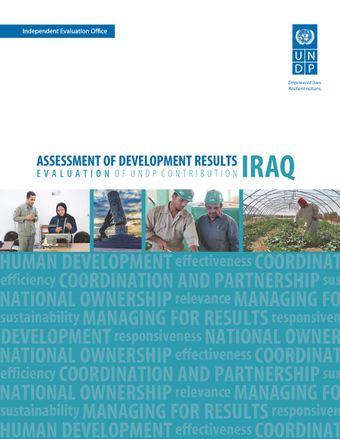National context

- Author: United Nations Development Programme
- Main Title: Assessment of Development Results - Iraq , pp 5-12
- Publication Date: December 2015
- DOI: https://doi.org/10.18356/bdadecd0-en
- Language: English
Until two decades ago, Iraq was highly regarded in the Middle East for its public sector management capability, its effective growth strategy for an emerging economy and its social welfare programmes. Since the 1991 Gulf War, years of war and international isolation have led to deteriorating infrastructure and underinvestment in public services. The hierarchical bureaucracy and inefficiencies of the socialist system, as well as secrecy and the patronage system under centralized rule, led to inefficiencies in public service delivery and a lack of transparency in governance. The country still suffers from the remnants of this system.
© United Nations
ISBN (PDF):
9789210568050
Book DOI:
https://doi.org/10.18356/733dc39d-en
Related Subject(s):
Economic and Social Development
Sustainable Development Goals:
Countries:
Iraq
-
From This Site
/content/books/9789210568050c006dcterms_title,dcterms_subject,pub_keyword-contentType:Journal -contentType:Contributor -contentType:Concept -contentType:Institution105
/content/books/9789210568050c006
dcterms_title,dcterms_subject,pub_keyword
-contentType:Journal -contentType:Contributor -contentType:Concept -contentType:Institution
10
5



